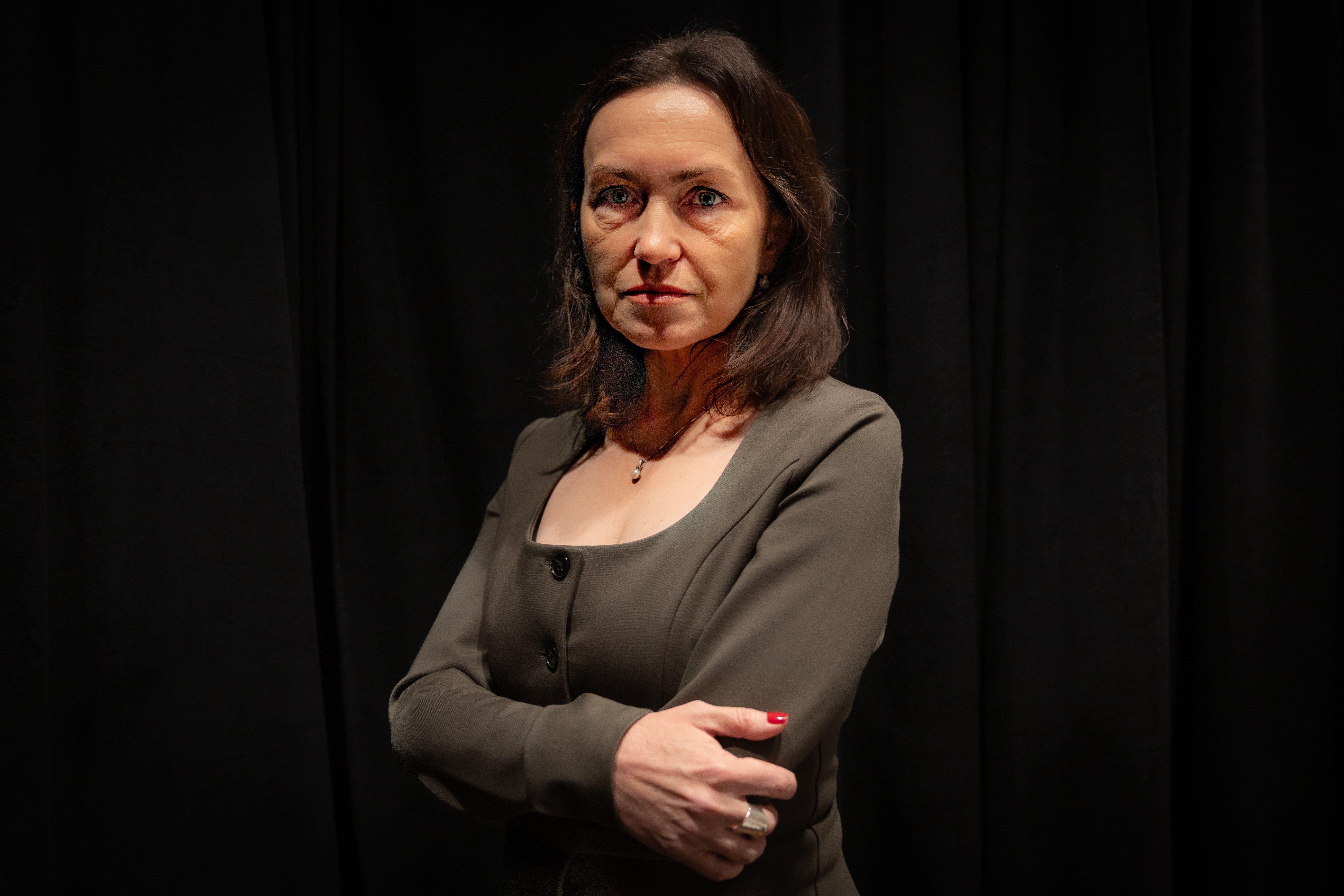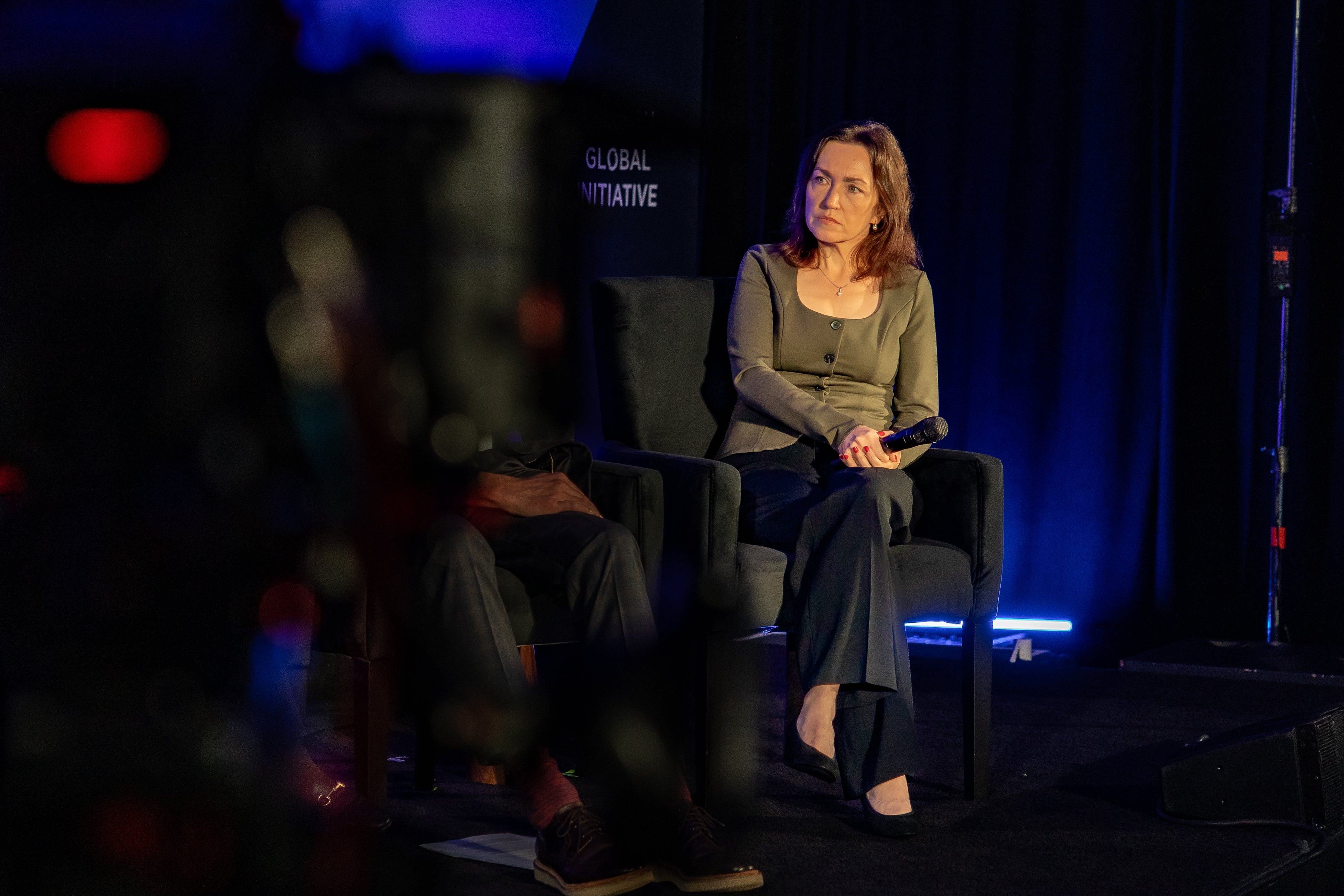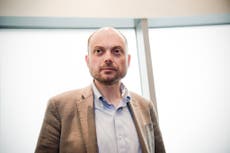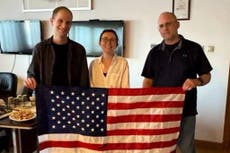‘I didn’t see the sun for 10 months’: American journalist reveals her ordeal in a Russian prison
Alsu Kurmasheva was among 16 people freed in the largest US Russian post-Soviet prisoner swap. She tells Bel Trew about life in prison and the moment she was snatched from her mother’s apartment by a swarm of men in black masks


From her mother’s balcony in her hometown in southwest Russia, Alsu Kurmasheva saw the swarm of men in black masks on her street and knew they were coming for her.
Four months earlier, in June 2023, the Russian-American journalist who worked for US-funded Radio Free Europe/Radio Liberty had been detained at Kazan airport when she tried to leave the country. The mother-of-two, who usually lives in Prague, had made the trip back to Russia to care for her ailing mother.
On her way out, the authorities confiscated her Russian and American passports and accused her of not declaring her US passport, which is illegal in Russia.
Now, she braced herself for the worst.
“I saw the men in masks in my neighborhood, and I didn’t have a good feeling. I called my husband, I called my lawyer, and I prepared myself. I tried to prepare my mother,” she told The Independent from New York, where she had been speaking in a session about press freedoms alongside former Secretary of State Hillary Clinton.
She waited for the men to burst through the door and “storm the flat.”
“From that moment, I just shut down all my emotions. I didn’t cry for days.”
That would be the beginning of a 10-month torment that, after a secret trial, saw her sentenced to six-and-a-half years in jail for “spreading false news”.

It ended in August 2024 with Ms. Kurmasheva being included in the largest US-Russian prisoner swap in post-Soviet history. Among the 16 people that Russia released with her were American citizen and Wall Street Journal reporter Evan Gershkovich and Vladimir Kara-Murza, a prominent British-Russian dissident who spoke of his own ordeal in Russia’s gulags in an exclusive interview with The Independent last week. As part of the deal, Russian security service hitman Vadim Krasikov was freed by Germany.
During those months in prison in Kazan, Ms. Kurmasheva was effectively held in solitary confinement, barred from phone calls to her family, denied medical treatment, and deprived of US consular visits. Her jailers applied crushing psychological pressure to try to break her.
“They would tell me that no one wanted me to be released, that nobody was responding to the requests to free me, that the whole world had forgotten about me,” she said, her voice cracking.
“They deprived me of phone calls to my daughters. I couldn’t see family. They kept saying no one’s coming for you, you’re here forever,” she added.
For several months she was held in a tiny cell, measuring just 1.5 by 2.5 meters (5ft by 8ft), with one other cellmate. It had a hole in the floor for a toilet, a small sink, and a bunk bed. There was one tiny window by the ceiling.
“I didn’t see the horizon or the sun in my cell for 10 months. There were walks in the courtyard, but the courtyard was also a cell with no roof. There were bars overhead,” she added.
The only thing that kept her going through the punishing incarceration were the cellmates she met along the way.
“With one cellmate, we would compose poetry. I would tell her a story, and she would rhyme it up. I met a couple of women later—one gave me math lessons. Another was from Morocco and taught me Arabic and French.”
Ms. Kurmasheva, who works for RFE/RL’s Tatar-Bashkir Service, was speaking on the sidelines of the Clinton Global Initiative conference in New York. There she joined Secretary Clinton, the CEO of the Committee to Protect Journalists (CPJ), Jodie Ginsburg, and the Global Director of the BBC, Jack Munro, in a special session to discuss the disastrous situation for journalism globally.
Ms. Ginsburg said that CPJ, that has tracked attacks on reporters for 40 years, had “never before experienced the breadth and depth of the attacks that we currently see against the media.”
Secretary Clinton warned of the domestic and global deterioration of press freedoms and, in particular, the “weaponizing of political opposition to the media,” which is increasingly happening in the US.
Ms. Kurmasheva called on the world, and particularly Western governments, not to turn away from the strangling of newsrooms globally because it “might not seem like an immediate threat, like access to water and food.”
Three of Ms. Kurmasheva’s colleagues at Radio Free Europe remain behind bars in Russia, she added, and many more need help. According to Reporters Without Borders Russia’s invasion of Ukraine in February 2022, almost all independent media have been banned, blocked or declared “foreign agents” or “undesirable organizations”. The rest are subject to military censorship.
“Journalism is a tool for the free world, and you have to fight for that,” she told The Independent, admitting that she felt “left behind” by the US, which only officially designated her as “wrongfully detained” while she was mid-prisoner swap on the flight home.

A US State Department designation would have marshaled full government resources to secure her release.
“The government was so slow on my designation. I am so thankful that they did, but I was among many journalists who are wrongfully detained. I call on all Western countries to move faster to do this for their citizens.”
In the last few months of her incarceration, her conditions improved, and she was even able to receive letters from the outside, which kept her going. She was sentenced in a hurried secret trial to six-and-a-half years in jail in December.
She said that in prison she had dreamed of being freed and seeing her daughters again, even during the process of release.
“Everything was so fragile. I didn’t believe it until I had my family in front of me. It was an incredible moment.”
“My message to my colleagues behind bars is to stay strong, stay resilient, and to the families: keep fighting for your loved ones, because it is possible. It’s hard, but it is possible.”
Join our commenting forum
Join thought-provoking conversations, follow other Independent readers and see their replies
Comments




Bookmark popover
Removed from bookmarks